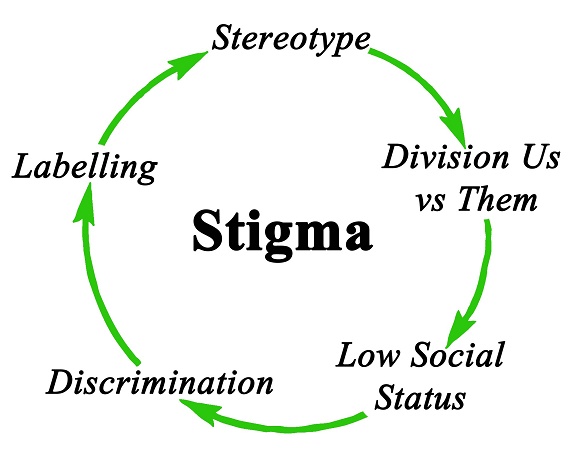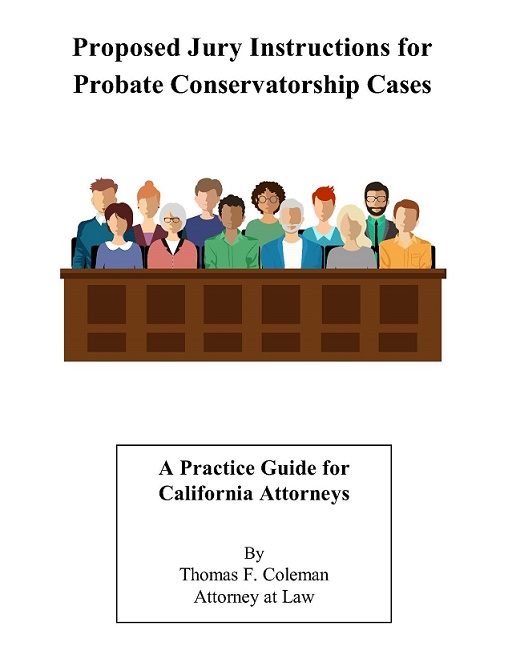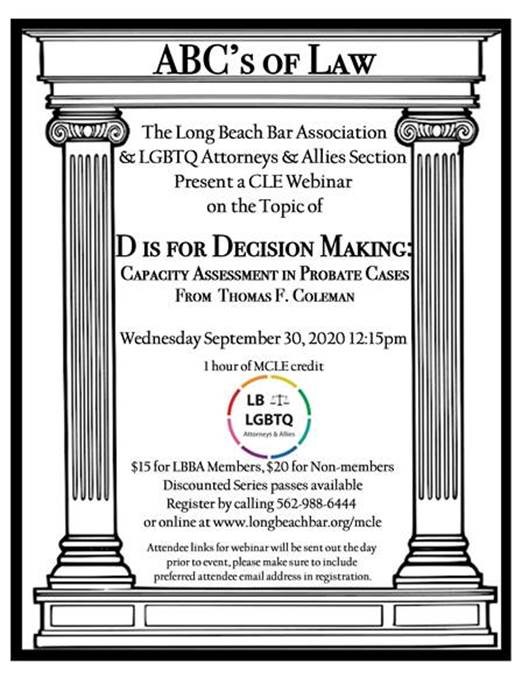What's New
December 29,
2020
Op-Ed Article
Calls on Supreme Court to Set New Tone on Disability Terminology
![]() The
Daily Journal published a commentary today written by attorney
Thomas F. Coleman focusing on bad linguistic habits of the judiciary
in writing opinions. The commentary asks the Supreme Court to direct
the reporter of decisions to include a new section in the California
Style Manual on disability terminology. When it comes to language
that is acceptable in legal briefs and judicial opinions, the
California Style Manual is the bible of legal lexicon. The Daily
Journal is California’s premier legal newspaper. It is read by
thousands of attorneys and judges throughout the state. To read or
download a pdf version of the commentary,
click here. To read it on the newspaper’s website,
click here.
The
Daily Journal published a commentary today written by attorney
Thomas F. Coleman focusing on bad linguistic habits of the judiciary
in writing opinions. The commentary asks the Supreme Court to direct
the reporter of decisions to include a new section in the California
Style Manual on disability terminology. When it comes to language
that is acceptable in legal briefs and judicial opinions, the
California Style Manual is the bible of legal lexicon. The Daily
Journal is California’s premier legal newspaper. It is read by
thousands of attorneys and judges throughout the state. To read or
download a pdf version of the commentary,
click here. To read it on the newspaper’s website,
click here.
December 18, 2020
Op-Ed: Ending
Disability Stigmas in Judicial Opinions
 The
Daily Journal published a commentary today written by attorney Thomas F. Coleman. It calls out a recent
appellate opinion in California that unnecessarily and inappropriately
used a derogatory term to label a woman with cerebral palsy. She had
filed an appeal from a court order forcing her to have ongoing visits
and mandatory therapy session with her father – someone she accused of
sexually assaulting her. The Court of Appeal reversed the order, ruling
that a superior court judge does not have authority for force an adult
conservatee to associate with a parent over her objections. The ruling
was good, with one exception. The caption of the case referred to the
woman as “an Incompetent Person.” The commentary explains that as
societal attitudes about people with disabilities change, so too must
judicial attitudes. The language that judges use to describe
people with disabilities should be respectful, not perjorative. For a
pdf copy of the commentary,
click here.
The
Daily Journal published a commentary today written by attorney Thomas F. Coleman. It calls out a recent
appellate opinion in California that unnecessarily and inappropriately
used a derogatory term to label a woman with cerebral palsy. She had
filed an appeal from a court order forcing her to have ongoing visits
and mandatory therapy session with her father – someone she accused of
sexually assaulting her. The Court of Appeal reversed the order, ruling
that a superior court judge does not have authority for force an adult
conservatee to associate with a parent over her objections. The ruling
was good, with one exception. The caption of the case referred to the
woman as “an Incompetent Person.” The commentary explains that as
societal attitudes about people with disabilities change, so too must
judicial attitudes. The language that judges use to describe
people with disabilities should be respectful, not perjorative. For a
pdf copy of the commentary,
click here.
December 4, 2020
Several New
Testimonials Have Been Added to the Website
 Testimonials
have been received from filmmaker and author Thomas Lee Wright, UCLA
Professor Linda Demer, guardianship reform advocate Dr. Sam Sugar,
attorney Evan Nelson, and attorney Lanny Davis. These
individuals have commented on the abilities of attorney Thomas F.
Coleman as an educator and advocate. They emphasize the value
of his services as a legal consultant and a speaker at conferences
and seminars. To read the testimonials,
click here.
Testimonials
have been received from filmmaker and author Thomas Lee Wright, UCLA
Professor Linda Demer, guardianship reform advocate Dr. Sam Sugar,
attorney Evan Nelson, and attorney Lanny Davis. These
individuals have commented on the abilities of attorney Thomas F.
Coleman as an educator and advocate. They emphasize the value
of his services as a legal consultant and a speaker at conferences
and seminars. To read the testimonials,
click here.
November 17, 2020
Daily Journal
Publishes Op-Ed on Jury Trials for Proposed Conservatees
 A
commentary by attorney Thomas F. Coleman titled "Jury Trials Are an
Elusive Right for Proposed Conservatees" was published today in the
Daily Journal. The legal newspaper is read by thousands of
judges and attorneys throughout California. The article
explores reasons why public defenders and court-appointed attorneys
do not demand jury trials for their clients in probate
conservatorship proceedings. The article also discusses the
new guidebook on jury instructions and explains that it is being
sent to the California Judicial Council with a request to develop
and publish approved instructions for all four types of probate
conservatorship cases. To read the op-ed article,
click
here.
A
commentary by attorney Thomas F. Coleman titled "Jury Trials Are an
Elusive Right for Proposed Conservatees" was published today in the
Daily Journal. The legal newspaper is read by thousands of
judges and attorneys throughout California. The article
explores reasons why public defenders and court-appointed attorneys
do not demand jury trials for their clients in probate
conservatorship proceedings. The article also discusses the
new guidebook on jury instructions and explains that it is being
sent to the California Judicial Council with a request to develop
and publish approved instructions for all four types of probate
conservatorship cases. To read the op-ed article,
click
here.
November 14, 2020
Jury Instruction Guidebook Now Available for California Probate Conservatorship Cases
 Attorney
Thomas F. Coleman has developed a jury instruction guidebook for public
defenders and appointed counsel who represent proposed conservatees in
California's probate courts. The initial edition of the guidebook
focuses on adults with developmental disabilities who must respond to
petitions seeking a limited conservatorship of the person or the estat
or both. A book published by the California Judicial Council contains approved jury instructions for most types of
civil cases, including mental health conservatorships. Probate
conservatorship cases are conspicuously absent from the book, despite
the fact that more than 5,000 such cases are filed annually in the
state. There are no jury instructions for limited conservatorships
despite the fact that the Legislature created this special type of
conservatorship for adults with developmental disabilities some 40 years
ago. To access the new guidebook,
click here.
Attorney
Thomas F. Coleman has developed a jury instruction guidebook for public
defenders and appointed counsel who represent proposed conservatees in
California's probate courts. The initial edition of the guidebook
focuses on adults with developmental disabilities who must respond to
petitions seeking a limited conservatorship of the person or the estat
or both. A book published by the California Judicial Council contains approved jury instructions for most types of
civil cases, including mental health conservatorships. Probate
conservatorship cases are conspicuously absent from the book, despite
the fact that more than 5,000 such cases are filed annually in the
state. There are no jury instructions for limited conservatorships
despite the fact that the Legislature created this special type of
conservatorship for adults with developmental disabilities some 40 years
ago. To access the new guidebook,
click here.
November 6, 2020
Legal Newspaper
Publishes Op-Ed Inspired by #FreeBritney Movement
 The
Daily Journal published a commentary today focusing on Britney Spears
and tens of thousands of other conservtees whose rights are being
violated by the probate conservatorship system in California. The
op-ed article was written by attorney Thomas F. Coleman. It
focuses heavily on the court's denial of Britney's right to be
represented by counsel of her choice in the legal proceeding. As a
result of the court summarily ruling that she lacked the capacity to
retain counsel, Britney has been forced to pay millions of dollars in
legal fees to this court-imposed attorney over the past several years.
To read the commentary,
click here.
The Daily Journal is California's premier legal newspaper. It is
read by thousands of lawyers and judges throughout the state.
The
Daily Journal published a commentary today focusing on Britney Spears
and tens of thousands of other conservtees whose rights are being
violated by the probate conservatorship system in California. The
op-ed article was written by attorney Thomas F. Coleman. It
focuses heavily on the court's denial of Britney's right to be
represented by counsel of her choice in the legal proceeding. As a
result of the court summarily ruling that she lacked the capacity to
retain counsel, Britney has been forced to pay millions of dollars in
legal fees to this court-imposed attorney over the past several years.
To read the commentary,
click here.
The Daily Journal is California's premier legal newspaper. It is
read by thousands of lawyers and judges throughout the state.
September 30, 2020
Long Beach Bar Association Hosts
Capacity Assessment Webinar
 Thomas
F. Coleman presented a webinar today on capacity assessments in
probate proceedings. The webinar was sponsored by the Long
Beach Bar Association. For access to the handout, which
includes links to reference materials online,
click here.
Thomas
F. Coleman presented a webinar today on capacity assessments in
probate proceedings. The webinar was sponsored by the Long
Beach Bar Association. For access to the handout, which
includes links to reference materials online,
click here.
Coleman is the author of a recent report" "Capacity
Assessments in California Conservatorship Proceedings:
Improving Clinical Practices
and Judicial Procedures to Better Protect the Rights of Seniors and
People with Disabilities.
The report has received positive reviews.*
*
Elder law attorney Cheryl Mitchel says: “This
report is a must-read for anyone who wants to have a better
understanding of why the current conservatorship system is broken
and the steps that must be taken to improve it.” National reform
advocate Dr. Sam Sugar, calls the report a “landmark
document” which “offers a sobering and cogent analysis of how this
‘system’ intended to assist those in need has instead become a tool
of government overreach.” Rick and Terri Black,
founders of the Center for Estate Administration Reform say: “This
report addresses a critical component of adult conservatorship
adjudication. What process should be used to fairly and
appropriately remove a person’s rights?” Writing to the
author, Kevin Bigelow of the National Adult Protective
Services Association said: “You have pursued this topic with the
same combination of professionalism and ability to explain complex
issues clearly that I have seen in your other work.”
August 1, 2020
Compendium of Commentaries is
Updated
![]() Over
the past few years, the Daily Journal legal newspaper has published
22 op-ed articles and commentaries written by Thomas F. Coleman.
The subject matter covers different aspects of disability and the
law: conservatorship reform, access to justice, ADA accommodations,
professional responsibility, voting rights, disability and abuse,
the right to therapy, appellate practice, legal education, and the
legal capacity to make decisions. To access these articles,
click here.
Over
the past few years, the Daily Journal legal newspaper has published
22 op-ed articles and commentaries written by Thomas F. Coleman.
The subject matter covers different aspects of disability and the
law: conservatorship reform, access to justice, ADA accommodations,
professional responsibility, voting rights, disability and abuse,
the right to therapy, appellate practice, legal education, and the
legal capacity to make decisions. To access these articles,
click here.
July 1, 2020
Capacity Assessment Report Sent to
California Government Officials
 After
15 months of reviewing capacity assessment laws and procedures
applicable to probate conservatorship proceedings, a report has been
sent to the Governor, Chief Justice, and Legislature in California.
The study was authorized by the board of tustees of Spectrum
Institute. The report, written by attorney Thomas F. Coleman,
has received excellent reviews from advocates and educators whose
activities have focused on conservatorship and guardianship
proceedings and on issues involving the legal capacity of seniors
and people with disabilities to make decisions in their lives. Staff
at the
California Law Review Commission studied the 129-page report,
noting that it “includes more than forty distinct recommendations to
various governmental entities, including the California
Legislature.” To access the report and recommendations, as well as
several reviews,
click here.
After
15 months of reviewing capacity assessment laws and procedures
applicable to probate conservatorship proceedings, a report has been
sent to the Governor, Chief Justice, and Legislature in California.
The study was authorized by the board of tustees of Spectrum
Institute. The report, written by attorney Thomas F. Coleman,
has received excellent reviews from advocates and educators whose
activities have focused on conservatorship and guardianship
proceedings and on issues involving the legal capacity of seniors
and people with disabilities to make decisions in their lives. Staff
at the
California Law Review Commission studied the 129-page report,
noting that it “includes more than forty distinct recommendations to
various governmental entities, including the California
Legislature.” To access the report and recommendations, as well as
several reviews,
click here.
May 12, 2020
New Report Released on Capacity to Consent to Sex
 A
new report on capacity to consent to sex has received excellent
reviews from an adult protective services training professional and
from a former prosecutor with decades of experience in cases of
abuse of elders and dependent adults. The report is titled
Capacity to Consent to Sex: Legal Standards & Best Practices for
Adult Protective Services. The report is written and
published by attorney Thomas F. Coleman. In addition to guiding APS
workers, the report may help organizations and agencies assisting
sexual assault victims. Since the issues of sex and capacity
may arise in guardianship and conservatorship proceedings, the
report is also a resource for lawyers, court investigators,
guardians ad litem, and capacity assessment professionals who are
involved in such cases. To read or download the report,
click here.
A
new report on capacity to consent to sex has received excellent
reviews from an adult protective services training professional and
from a former prosecutor with decades of experience in cases of
abuse of elders and dependent adults. The report is titled
Capacity to Consent to Sex: Legal Standards & Best Practices for
Adult Protective Services. The report is written and
published by attorney Thomas F. Coleman. In addition to guiding APS
workers, the report may help organizations and agencies assisting
sexual assault victims. Since the issues of sex and capacity
may arise in guardianship and conservatorship proceedings, the
report is also a resource for lawyers, court investigators,
guardians ad litem, and capacity assessment professionals who are
involved in such cases. To read or download the report,
click here.
April 22, 2020
Daily Journal Publishes Op-Ed on
Capacity to Litigate
 The
Daily Journal legal newspaper published a commentary today focusing
on constitutional issues involved in the appointment of a guardian
ad litem when a judge is concerned that a party to a case is “an
incapacitated person” or lacks legal capacity to make decisions. The
article was written by attorney Thomas F. Coleman. It references the
case of Bradford Lund, grandson of the late Walt Disney, as an
example of the need for more clarity in California law concerning
the criteria for incapacity to litigate and the procedures to be
used in making such a determination. To read the commentary,
click
here.
The
Daily Journal legal newspaper published a commentary today focusing
on constitutional issues involved in the appointment of a guardian
ad litem when a judge is concerned that a party to a case is “an
incapacitated person” or lacks legal capacity to make decisions. The
article was written by attorney Thomas F. Coleman. It references the
case of Bradford Lund, grandson of the late Walt Disney, as an
example of the need for more clarity in California law concerning
the criteria for incapacity to litigate and the procedures to be
used in making such a determination. To read the commentary,
click
here.
January 9, 2020
Op-Ed: Conservatees Are Legally Entitled to Better Therapy Options
 The
Daily Journal has published a commentary by attorney Thomas F. Coleman
explaining how conservatees with developmental disabilities have the
legal right to receive prompt and effective mental health therapy to
treat trauma and other mental health conditions. Applied behavior
analysis (ABA) procedures that attempt to change conduct are not a
substitute for therapy that addresses the underlying causes of troubling
symptoms. The denial of access to such therapy services can give rise to
civil and criminal liability for conservators and are providers. To read
the commentary,
click here.
The
Daily Journal has published a commentary by attorney Thomas F. Coleman
explaining how conservatees with developmental disabilities have the
legal right to receive prompt and effective mental health therapy to
treat trauma and other mental health conditions. Applied behavior
analysis (ABA) procedures that attempt to change conduct are not a
substitute for therapy that addresses the underlying causes of troubling
symptoms. The denial of access to such therapy services can give rise to
civil and criminal liability for conservators and are providers. To read
the commentary,
click here.